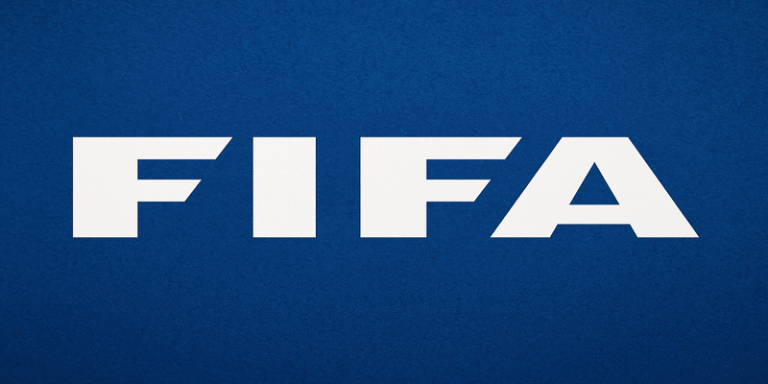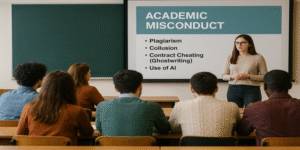1.0 Origins and Structure
The Fédération Internationale de Football Association (FIFA) was founded on 21 May 1904 in Paris to regulate international football among seven founding members: Belgium, Denmark, France, Germany, the Netherlands, Spain and Switzerland (Wikipedia, 2025). Since then, FIFA has grown to encompass 211 national associations, each organised into one of six continental confederations: AFC, CAF, CONCACAF, CONMEBOL, OFC and UEFA (Wikipedia, 2025). Headquartered in Zurich, Switzerland, the organisation is led by a President—currently Gianni Infantino—and governed by the FIFA Congress, Council, and various standing committees.
2.0 Governance and Global Influence
FIFA operates as a transnational private actor, wielding enormous soft power in global affairs (Cazotto et al., 2022). It functions alongside national governments, often influencing diplomacy and policy through major events like the FIFA World Cup (Cazotto et al., 2022). However, FIFA’s democratic veneer—embodied in its “one nation, one vote” model—has led to recurring issues of opacité in governance and undue influence from smaller federations (American University, 2013).
3.0 Institutional Weaknesses & Corruption
A longstanding critique of FIFA’s governance is its susceptibility to corruption. Scholars like Junghagen and Tomas (2021) attribute this vulnerability to its networked committee structure, which enabled vote-trading during World Cup host selections (Junghagen et al., 2021). Evidence from the 2015 scandal revealed deep-rooted bribery and racketeering linked to marketing rights and World Cup bidding (Wikipedia, 2025; Gibson, 2015).
Despite being a private body, FIFA officials have faced prosecution in the United States under its global anti-corruption laws—primarily due to use of US banking systems (ASIL, 2015). Fabian Boudreaux (2018) and Daniel Gibson (2015) argue that corruption in FIFA is neither random nor episodic, but systemic—serving as a governance mechanism to coordinate elite interests (Boudreaux, 2018; Gibson, 2015). The 2016 reforms, branded FIFA 2.0, failed to eradicate ingrained behaviours (Oxford Academic, 2013; Business Insider, 2025).
4.0 Leadership, Reform and Resistance
Presidents João Havelange (1974–1998) and Sepp Blatter (1998–2015) expanded FIFA’s commercial reach dramatically—e.g., through lucrative marketing contracts and World Cup iterations—but also presided over deepening governance failures (Wikipedia, 1998; Oxford Academic, 2013). Under Blatter, FIFA enforced radical globalisation of football, increasing inclusivity but weakening mechanisms for ethical accountability (Oxford Academic, 2013).
The watershed moment came in May 2015, when seven FIFA officials were arrested in Zurich and President Blatter resigned amid escalating US FBI and IRS investigations (Wikipedia, 2015; The New Yorker, 2010). Investigations exposed bribes tied to World Cup bids, particularly for Russia 2018 and Qatar 2022 (Wikipedia, 2025; ASIL, 2015).
Independent auditor Michael Garcia was commissioned to analyse the bid corruption, but his final report was only partially released in 2017 (Wikipedia, 2025; Fox Sports, 2014). Political and ethical resistance arose, with academics pointing out that reforming FIFA requires cultural transformation, not just changing procedures (Guardians Network, 2025; Oxford Academic, 2013).
5.0 Reform Attempts and Ongoing Critiques
Post‑2015, psychological and functional reforms took place, including enhanced ethics safeguards, term limits for officials, and more rigorous financial oversight (FIFA, 2016). However, critics remain unconvinced that culture has changed. An open letter in May 2025 argued FIFA is “arguably more poorly governed today than 10 years ago”, citing lack of transparency and excessive centralisation (The Guardian, 2025).
The recent awarding of the 2034 World Cup to Saudi Arabia reignited debate over ethics versus revenue—given concerns about human rights and sportswashing (Financial Times, 2024; Guardian, 2025). NGOs assert that existing reforms stave off superficial abuses but cannot challenge ingrained structures prioritising political loyalty over football integrity (The Guardian, 2025).
6.0 Towards Good Governance in Sport
Sport governance scholars advocate principles like transparency, accountability, democracy, and stakeholder engagement (Good Governance in Sport, 2020). They argue FIFA must adopt stronger external supervision—by civil society, governments and the International Olympic Committee—to enforce ethical standards (OAPEN, 2020). Essentially, FIFA needs to shift from elite capture to public-interest governance.
7.0 The Road Ahead: Challenges & Opportunities
FIFA now faces mounting pressure to reform its mid‑level institutions like confederations, which wield significant influence over elections and development funding (Cazotto et al., 2022). Effective change will likely require a mix of internal self‑regulation and external accountability, including compliance with global anti-corruption frameworks.
Success depends not just on new policies, but on transformed values—prioritising transparency over loyalty, competence over kinship, and sustainability over profit. FIFA’s fate will be decided not on the pitch, but in the corridors of power.
References
American University (2013) One Vote Rule: Does Democratic Governance Ensure Its “Corporate…”. American University Business Law Review. Available at: https://digitalcommons.wcl.american.edu/aublr/vol3/iss2/7/ (Accessed: 19 July 2025).
ASIL (2015) ‘The FIFA Corruption Scandal from the Perspective of Public International Law’, ASIL Insights, 19(23). Available at: https://www.asil.org/insights/volume/19/issue/23/fifa-corruption-scandal-perspective-public-international-law (Accessed: 19 July 2025).
Boudreaux, F. (2018) Bend it like FIFA: Corruption on and off the Pitch. Florida Atlantic University. Available at: https://home.fau.edu/cboudreaux/web/FIFA%20Corruption%20final%20draft%20for%20online%20version.pdf (Accessed: 19 July 2025).
Business Insider (2025) How FIFA corruption actually works, according to a soccer whistleblower. Available at: https://www.businessinsider.com/how-fifa-corruption-actually-works-2025-1 (Accessed: 19 July 2025).
Cazotto, G. N., Fronzaglia, M. and Racy, J. (2022) ‘Institutional Aspects of FIFA Governance and Its Impact on International Relations’, American Journal of Industrial and Business Management, 12, pp. 824–839. Available at: https://www.researchgate.net/publication/360575048_Institutional_Aspects_of_FIFA_Governance_and_Its_Impact_on_International_Relations (Accessed: 19 July 2025).
Financial Times (2024) How Saudi Arabia won the World Cup. Available at: https://www.ft.com/content/abfb932a-f688-4970-b160-f07e30bc8918 (Accessed: 19 July 2025).
Fox Sports (2014) Garcia to report on FIFA corruption probe. Available at: https://www.foxsports.com/stories/soccer/garcia-to-report-on-fifa-corruption-probe (Accessed: 19 July 2025).
Gibson, D. (2015) FIFA’s Dirty Secrets: Panorama. BBC Panorama. Available at: https://www.bbc.com/news/uk-32903530 (Accessed: 19 July 2025).
Guardian (2025) ‘Fifa “more poorly governed today than 10 years ago”, open letter to organisation claims’, The Guardian, 27 May. Available at: https://www.theguardian.com/football/2025/may/27/fifa-more-poorly-governed-open-letter-football-politics (Accessed: 19 July 2025).
Good Governance in Sport (2020) Critical Reflections on the Ethics of Sport Governance. OAPEN. Available at: https://library.oapen.org/bitstream/id/396a8ec9-13d6-494e-9075-14cd98716c2d/9781000479515.pdf (Accessed: 19 July 2025).
Junghagen, S. and Tomas, G. (2021) Structural Susceptibility to Corruption in FIFA: A Case Study Approach. Copenhagen Business School. Available at: https://research.cbs.dk/files/68147050/junghagen_et_al_structural_susceptibility_acceptedversion.pdf (Accessed: 19 July 2025).
Oxford Academic (2013) ‘Sports Governing Bodies: The FIFA Experience’, in Leadership, Ethics and Governance in Sport. Oxford University Press. Available at: https://academic.oup.com/book/26938/chapter/196069874 (Accessed: 19 July 2025).
Wikipedia (2025a) FIFA. Available at: https://en.wikipedia.org/wiki/FIFA (Accessed: 19 July 2025).
Wikipedia (2025b) 2015 FIFA corruption case. Available at: https://en.wikipedia.org/wiki/2015_FIFA_corruption_case (Accessed: 19 July 2025).
Wikipedia (2025c) Sepp Blatter. Available at: https://en.wikipedia.org/wiki/Sepp_Blatter (Accessed: 19 July 2025).









